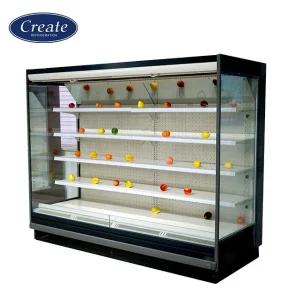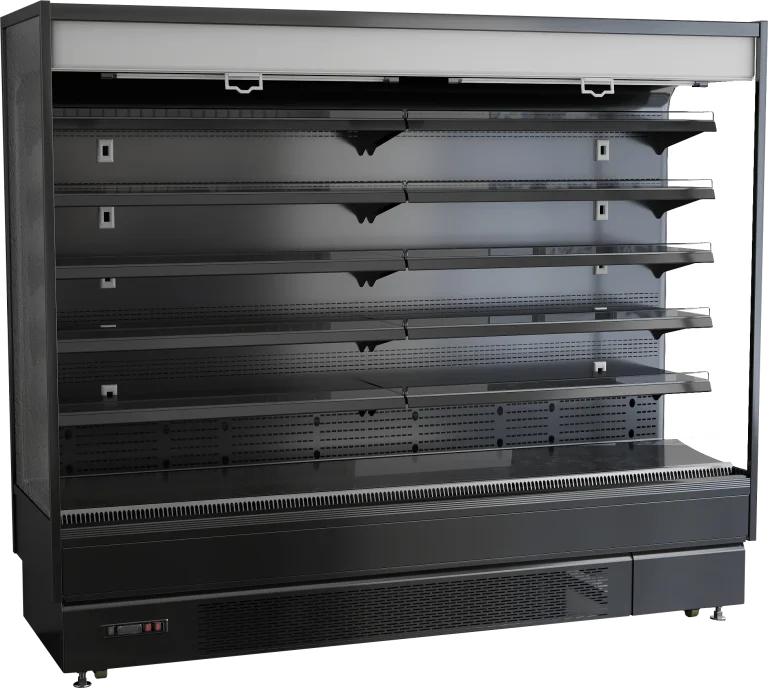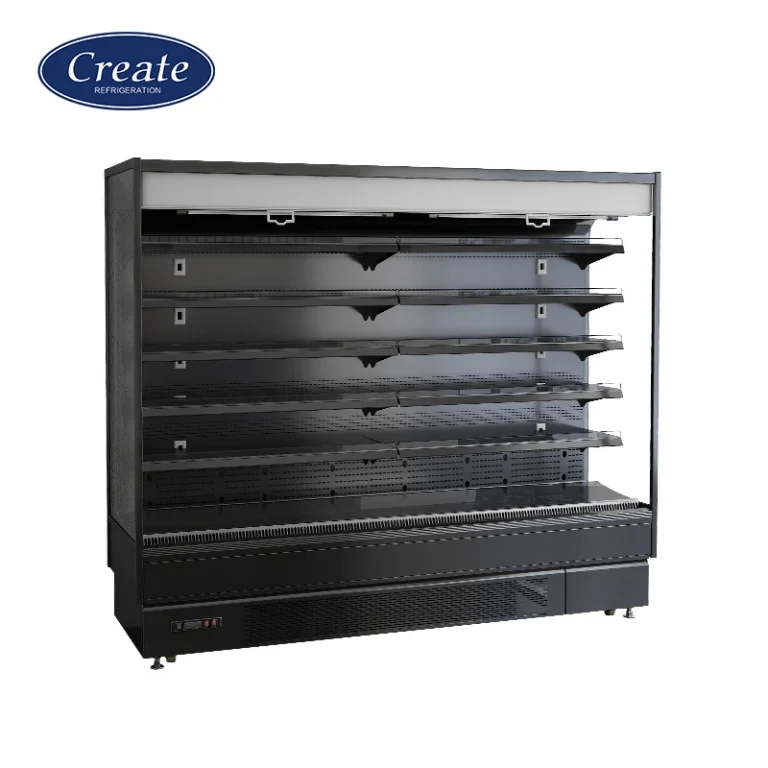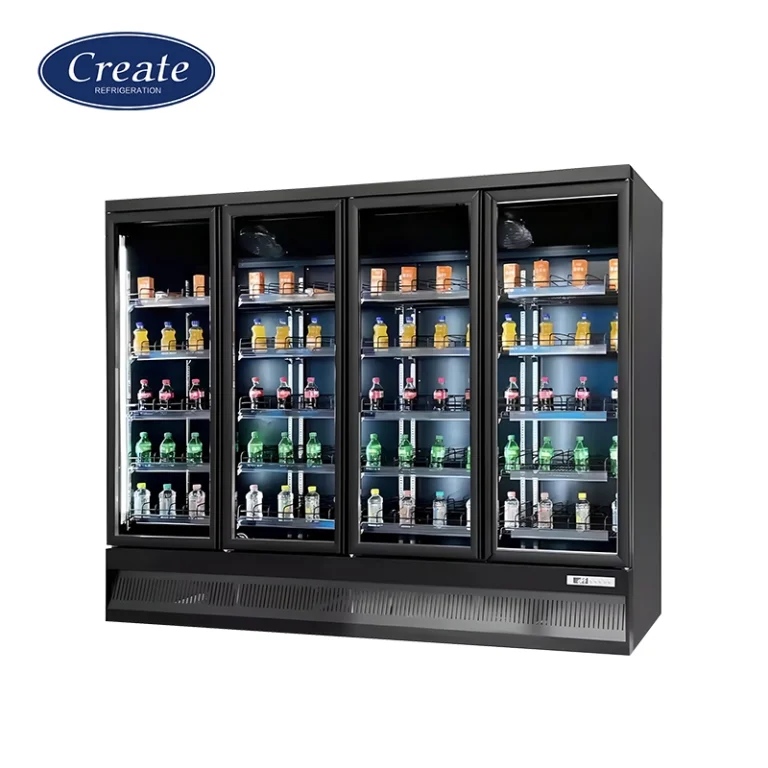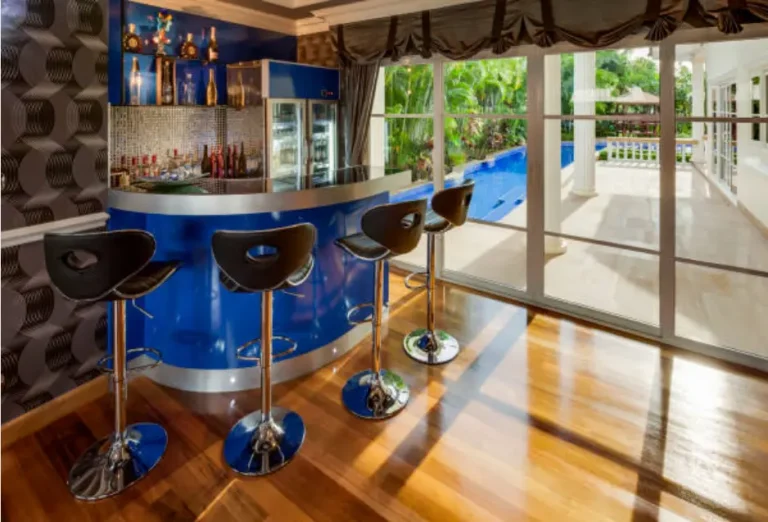Knowing the differences between standard freezers is crucial if you work in the food service sector or are thinking about improving your current refrigeration setup. Commercial freezers are made to withstand the demanding requirements of businesses, whereas standard freezers are tailored for home use. In this blog, we will explore the details of these freezer types, and present a thorough comparison.
Understanding the Basics of Freezers
Commercial and household freezers serve to prolong the shelf life of items by maintaining them at temperatures below freezing point to prevent bacterial growth and delay decay rates.
Definition and Purpose of Commercial Freezers
Commercial freezers are tailored appliances intended for commercial settings like restaurants and supermarkets, where food safety is paramount for storing perishable items in bulk at ideal temperatures to uphold quality standards effectively and maintain operational efficiency through quick access to frozen goods despite frequent usage demands and varying temperature conditions.
Definition and Purpose of Regular Freezers
Common freezers that are usually seen in homes are meant for use and are used to keep food fresh and nutritious for a long time by storing it properly. These freezers are created with the user’s convenience in mind. Prioritize easy operation and energy efficiency. They are often seen with refrigerators as a single unit but can also be used separately as individual appliances.
Key Differences Between Commercial and Regular Freezers
When you look at commercial and standard freezers side by side, you’ll notice some distinctions in their design, temperature regulation capabilities, storage space, and overall effectiveness. These disparities cater to the requirements of businesses as opposed to individual homes.
Design and Construction Variations
Commercial freezers are made using materials to withstand the demands of commercial settings and are usually equipped with stainless steel exteriors for longevity and convenience in cleaning purposes. The insides are planned to make the most of storage space by utilizing shelving systems that can hold different sizes of food containers. On the other hand, standard freezers focus more on looks and are designed for household kitchens. They often come with plastic or aluminum interiors and fixed shelves tailored to meet household food storage requirements.
Temperature Range and Control Mechanisms
Commercial freezers have a temperature range compared to regular freezers to cater to diverse food storage needs effectively. Distinguished by sophisticated control features that enable temperature adjustments and monitoring in adherence to health standards. Compared to units with advanced controls and monitoring systems for stringent regulatory compliance with health standards, regular freezers are equipped with basic temperature settings suitable for everyday household use but lack the accuracy essential for commercial applications.
Storage Capacity and Space Utilization
Commercial freezers are known for their storage capabilities that exceed those of standard freezers by a significant margin. This larger capacity proves invaluable for businesses seeking to accommodate inventory quantities efficiently. These commercial freezers are meticulously designed to optimize space utilization through the inclusion of features, like sliding drawers and pull-out bins that promote organized storage. In contrast, regular freezers are tailored to meet the consumption needs of households and do not necessitate extensive bulk storage options.
Performance and Efficiency Considerations
The effectiveness and productivity of both standard freezers play a crucial role in your business operations and expense management; hence, it is essential to grasp these aspects for making well-informed choices.
Energy Consumption Patterns
Commercial freezers often use energy compared to standard freezers because of their larger size and greater performance requirements; however, they are designed to be energy efficient within their specific operational settings by including features such as high-efficiency compressors and enhanced insulation materials. On the other hand, standard freezers are designed with a focus on meeting residential energy consumption standards. They consume less power overall but may not incorporate the advanced efficiency technologies commonly found in commercial freezer models.
Cooling Speed and Consistency
Commercial freezers cool down quickly thanks to compressors that are built to lower temperatures rapidly, especially after frequent door openings or restocking events occur, ensuring that stored items stay at safe temperatures consistently throughout the day. On the other hand, household freezers have a slower cooling pace, which is more suitable for occasional use in a home environment where access is less frequent compared to commercial settings. The reliability of maintaining temperature settings might fluctuate more in regular freezers due to their less robust cooling systems when contrasted with their commercial counterparts.
By recognizing these differences, individuals can make informed choices tailored to their particular requirements—whether it involves overseeing a busy restaurant kitchen or effectively storing household groceries at home.
Maintenance and Durability Factors
Taking care of your freezer and making sure it lasts a long time is crucial for its longevity and overall usefulness.
Maintenance Requirements for Commercial Freezers
Maintaining freezers is essential to keep them running smoothly and lasting longer in tough conditions where they are heavily used compared to standard freezers that need less attention. Regular checks like cleaning the condenser coils and inspecting door seals for any damage are tasks for upkeep along with verifying that the temperature controls work properly. By staying consistent with maintenance routines, you can avoid repairs and uphold health standards as required. Keeping an eye on the refrigerator system is important too because even small problems can cause a lot of energy waste or food to go bad.
Longevity and Durability of Regular Freezers
Household freezers are typically crafted with longevity in focus. Tend to be less sturdy compared to commercial models. Their construction is geared towards enduring years in standard home settings with little upkeep needed apart from routine cleaning and periodic inspections of door seals and temperature controls. The components utilized in household freezers like plastic or aluminum interiors are suitable for purposes but might not hold up well in a professional setting. For home use, they can last a long time but might not hold up as well in commercial settings where demands are high.
Cost Implications and Investment Value
Considering the price of a freezer is crucial, you must assess both the cost and the lasting benefits it offers to determine which freezer is a worthwhile investment.
Initial Purchase Price Comparison
Commercial freezers usually cost more than freezers initially because they are larger and made of higher quality materials with advanced features and better performance capabilities compared to their counterparts meant for personal use at home. Businesses need to view this upfront cost as an investment that can bring benefits like increased storage space and improved efficiency to their operations. On the side of the coin are regular freezers that are more budget-friendly options for individual consumers seeking simple yet reliable solutions for storing food at home without the bells and whistles of commercial-grade features.
Long-term Value Assessment
When considering the long-term benefits of freezers for businesses in terms of durability and efficiency in managing large inventories while maintaining compliance with health standards can prove to be a wise investment choice, over time despite their initial higher costs offset by potential savings from reduced spoilage expenses. Additionally, energy-efficient models offer the advantage of utility bills despite consuming more power. For household needs regular freezers are valued for their maintenance requirements and energy efficiency features. They offer storage options without causing high operating expenses, which makes them a sensible pick for domestic use.
Selecting A Reliable Supplier
Shandong Create Refrigeration Co., Ltd., a manufacturer of commercial refrigeration equipment based in China, was founded in 1999 and boasts 25 years of expertise in the field of refrigeration technology. They manufacture more than 23k sets of refrigeration equipment each year and offer a diverse range of products such as commercial freezers. Furthermore, they provide OEM services for renowned brands. Create’s products are certified as per standards like CE, GS, CCC, CB, ETL, PSE, RoHS, GEMS, IEC, and SABER certifications ensuring high quality and reliability.
FAQs
1. How long does a commercial freezer usually last in operation?
Most units are expected to remain operational for a period ranging from 10 to 15 years.
2. What factors should I consider when selecting the commercial freezer size for my business needs?
When deciding on the size of your freezer unit, consider factors like the variety of items on your menu and the space available in your kitchen for storage purposes. A wider selection of menu items may necessitate a storage capacity.
3. What temperature should food be stored in a freezer for optimal preservation?
It’s best to store food at a temperature of 0°F (18°C) or colder.


